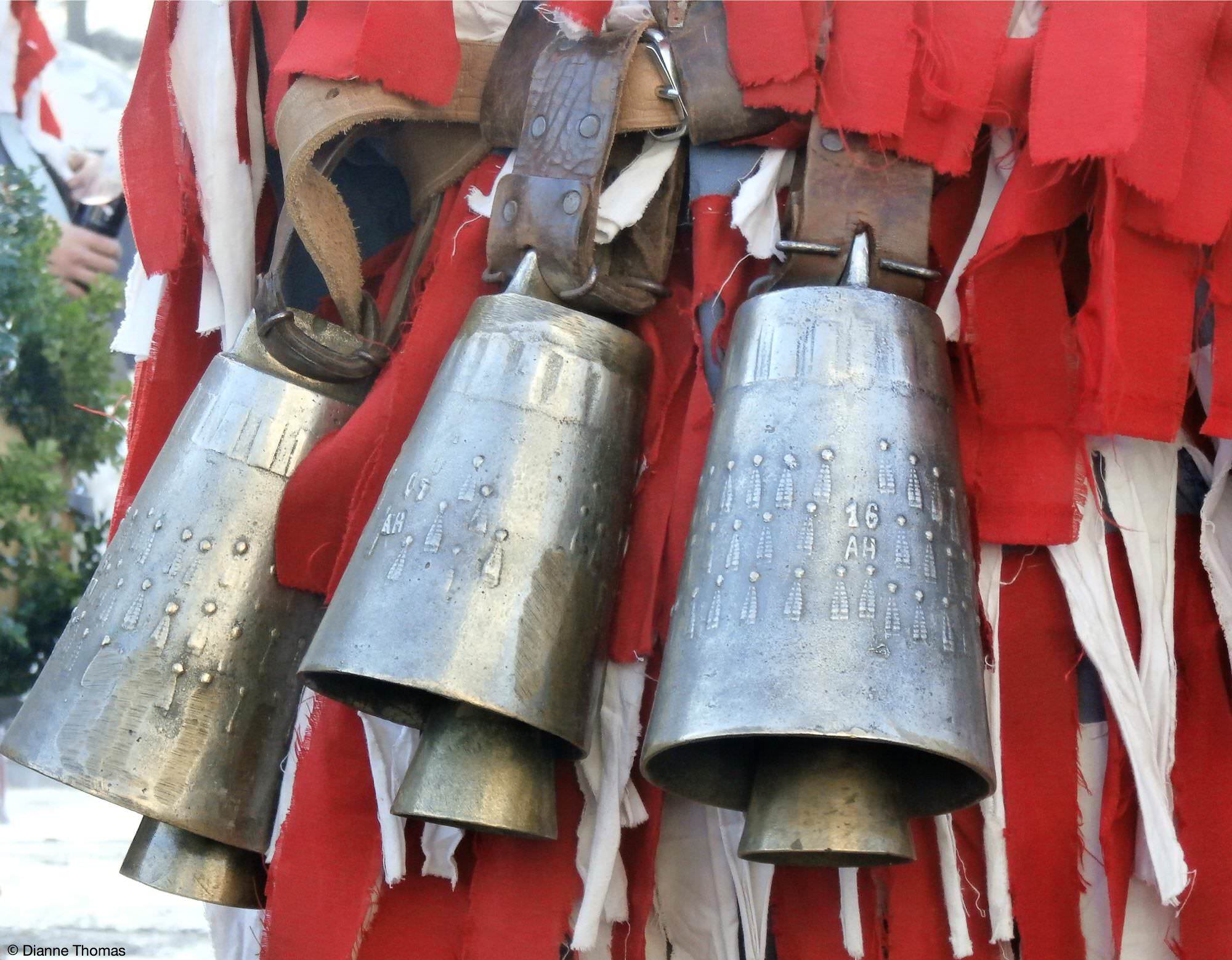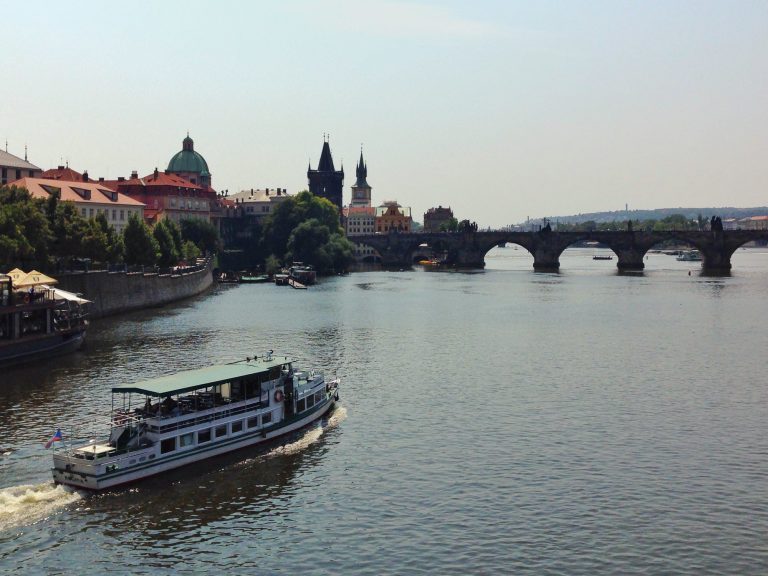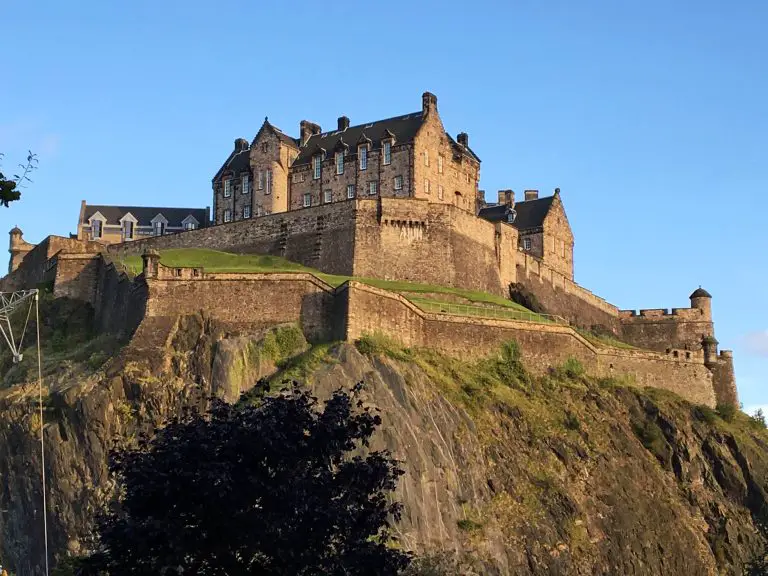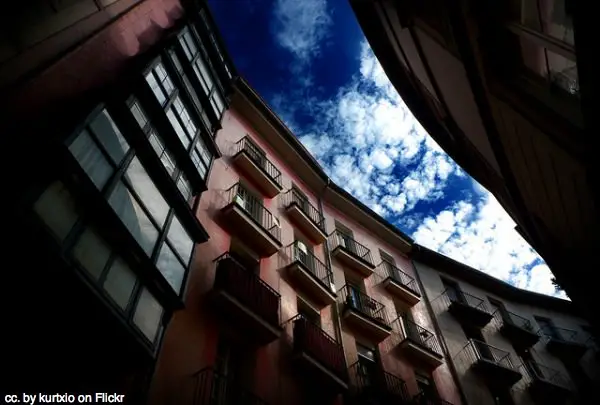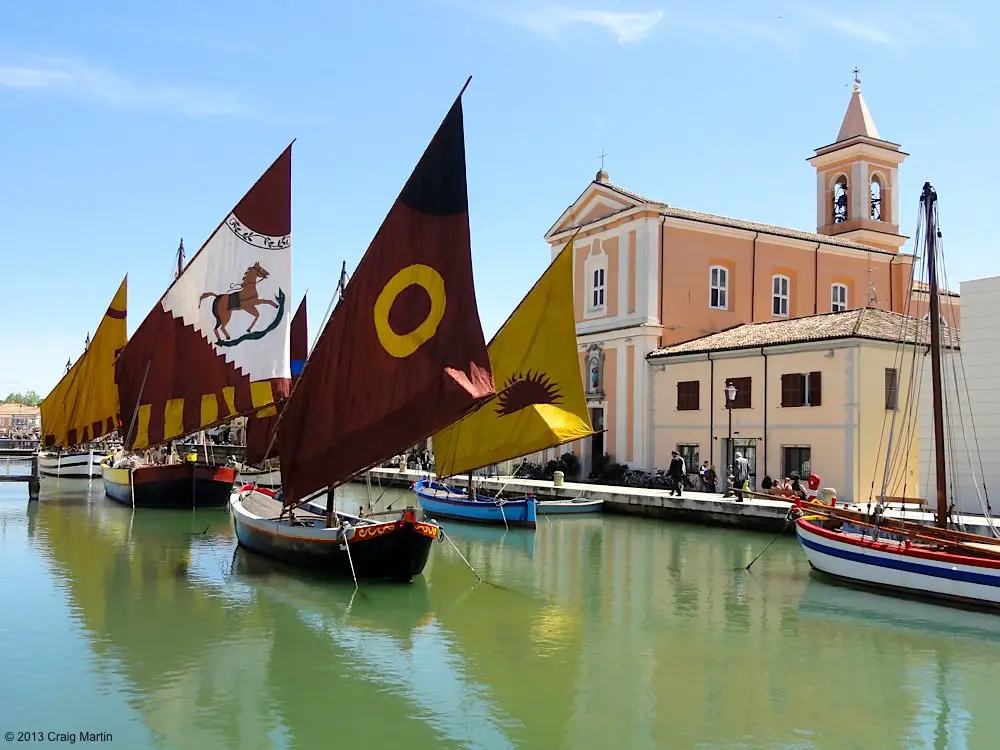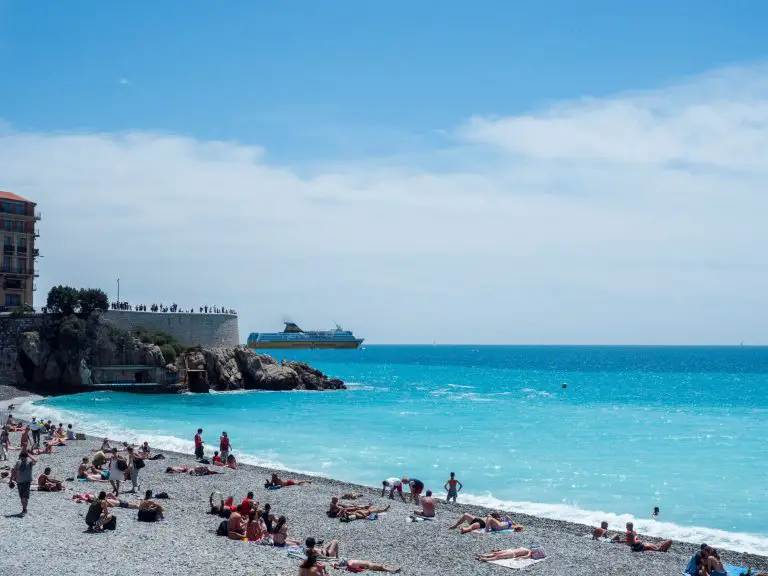How to celebrate Surva in Pernik, Bulgaria
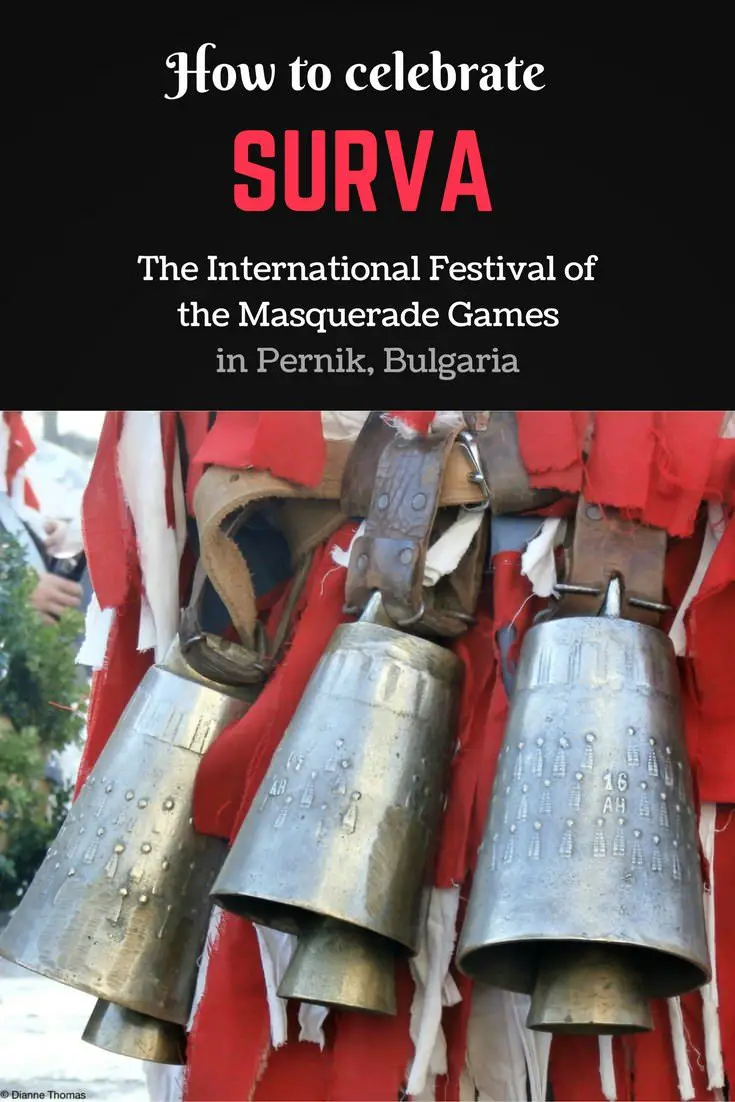
But as we walk closer, passing lines of parked-up coaches and stragglers making last-minute amendments to their costumes, we suddenly hear traditional Bulgarian music being played out with the intermingling of what we later find out are the clattering of cow bells. When we turn the corner, the imposing Communist-style buildings that surround the centre’s square fade into the background, and we cram into place alongside thousands of people assembling for the procession.
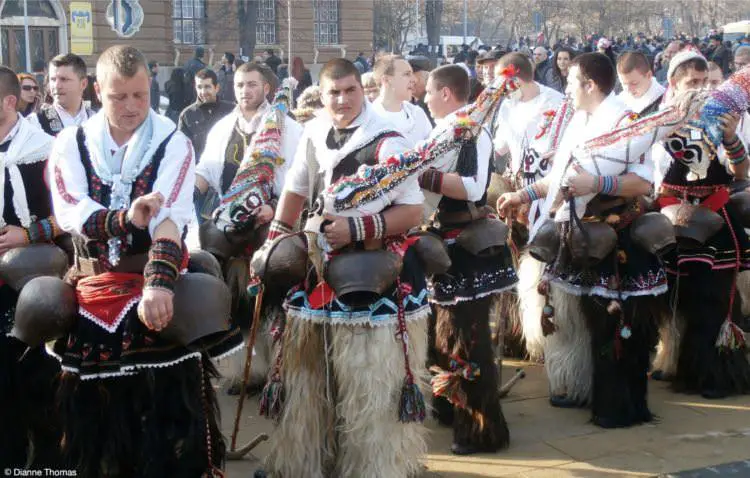
Folklore rituals are alive and dancing, loudly!
It seems we have officially landed in Surva, the International Festival of the Masquerade Games, celebrated by thousands of performers from all over Bulgaria, the Balkans and — in more recent years — the rest of the international world. It’s the biggest of its kind and has been hosted in Pernik, Surva’s European capital, since 1965. However, the original roots of this Pagan festival date back to Thracian times where the Kukeri Ritual Games were held in tribute to the god, Dionysus. Luckily for us, their ancient customs and folklore are still being honoured for us all to partake in today.
The noise of the cowbells becomes deafening as most of the performers seem to be laden with huge, brass or copper bells hanging off their waists which they bang with sticks, or do an overly-animated jiggle so they’re used with maximum effect alongside their ritual dancing. And it’s not just their bells that make up their outfits: the predominantly male Kukers are elaborately dressed in colourful, handmade costumes with horned headdresses or decorative masks made from feathers, beads, sheepskin, beads and ribbons.
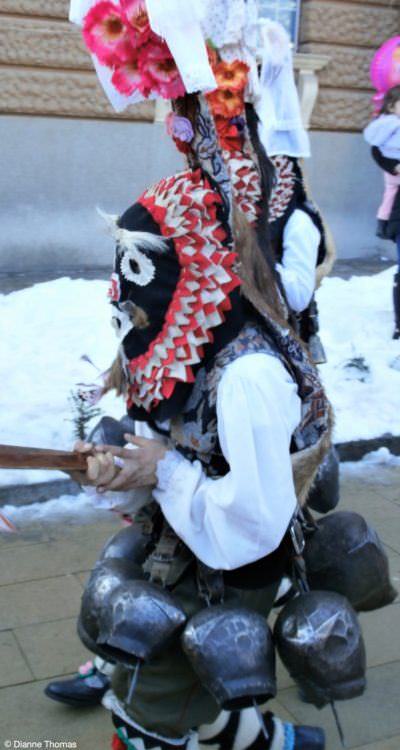
Masks play an important role in this custom and usually represent animals such as goats, bulls or rams, with some having two sides of a face characterising the co-existence of good and evil, the grotesque and the picturesque. Designed according to the ethnographic regions to honour the cycles of life, death and rebirth, the colours of red (fertility, sun and fire), black (Mother Earth) and white (water and light) have an important symbolic connection with the spirits. To touch a mask is considered good luck and offers protection for the coming year.
What is Kukeri?
Kukeri has been celebrated in villages for centuries; single men dressing up and visiting village houses, performing their protective rituals. The ceremonious dancing lies in the premise that they’ll scare away evil spirits and to celebrate the beginning of spring and prospects for a rich harvest. Each village has its own unique mask, dance and music to embellish the tradition.
Fast forward to the Mummer’s Festival in Pernik, and the Kukeri has been modernised with women and children now allowed to take part, and satirical costumes of political figures have also seeped into the ceremony.
The procession is picking up and so is the noise! Pipes and drums have now joined the cowbells and troupes of local Kukers are wildly dancing and jumping past us. The parade is often punctuated by extended dance and music routines so everyone gets a chance to see them in action. It also gives the performers an opportunity to take gulps from their hidden bottles of rakia, (homemade fruit brandy) which may help their zeal! Their frenzied enthusiasm should rightly be cheered along as the sheer weight of the bells alone must be hard to carry off and if there were any evil spirits in Pernik, they certainly would have been scared away that weekend.
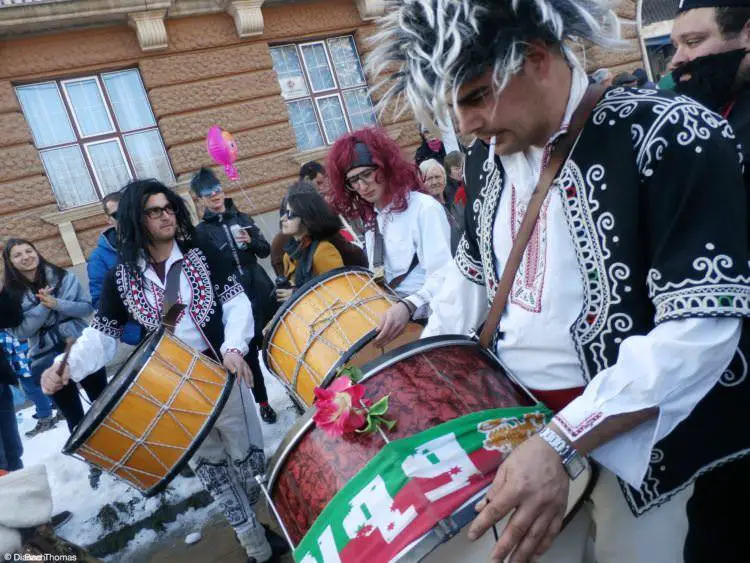
Where to stay in Pernik during the International Festival of the Masquerade Games
Pernik is a limited on hotels so if you do decide to stay there you need to book well in advance for this weekend as thousands descend on the town and rooms fill up quickly. The good news is that Sofia is a relatively short distance away and has plenty of hotels, hostels and Airbnbs to choose from.
However, it’s still wise to book as far in advance as you can so that you’re able to pick and choose where to stay according to your budget.
Alternatively, look up accommodation around Vitosha, a mountainous suburb outside of Sofia, which also happens to be closer to the direction of Pernik.
Getting to Pernik
Being so close to Sofia, Pernik is easily accessible by public transport. Buses run from early morning to early evening on an hourly basis and cost around $3. Trains are more frequent, and cheaper, leaving from Sofia’s main train station. Plus, they are scheduled to run later than the buses. However, the later you leave the event, the fewer spaces available — so the best advice is to book in advance to ensure your return journey.
If you don’t fancy joining the ramble on a bus or train, a local taxi can take you to and from Sofia centre for around $20-25. Be aware that Sofian taxi drivers have a bad reputation of ripping tourists off. To avoid this, only take a taxi from a reputable company such as OK Taxis, or better still, organise one through your hotel service. Pernik is only a half-hour taxi ride from Sofia.
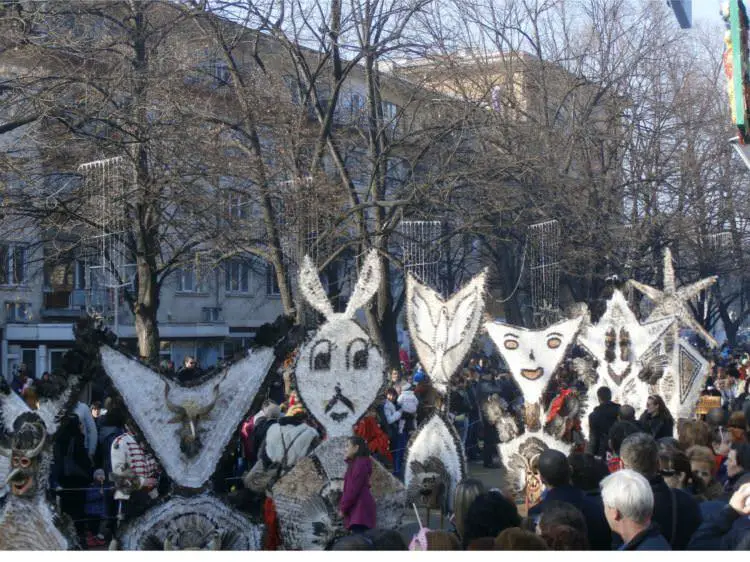
Everything else you need to know about the Masquerade Games
Given that this three-day festival takes place on the last weekend in January, dress up warm! Until you start getting into the dancing and jumping around, you’ll probably spend a lot of time being standing in the cold, and perhaps snow. When your energy needs replenishing, there are plenty of food and drink stalls ready for your patronage!
This year’s International Festival of the Masquerade Games takes place from 27th to 29th January, 2017. Although there is a torchlight opening ceremony on the Friday evening, to make the most of your visit I recommend you spend the whole day there on either the Saturday or Sunday. While you’re there, you can get involved in workshops, exhibitions, culinary shows and continue dancing from music stages in the square.

